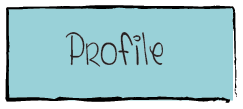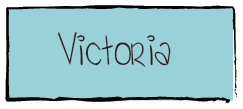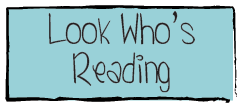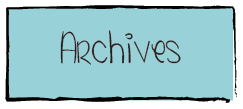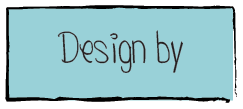Science has always fascinated me. Unfortunately, I wasn't smart enough to pursue a degree in Chemistry or Physics. I did end up with a minor in Biology, and my favorite times as a teacher always revolved around 5th grade Science classes. 5th grade allows us one of our last opportunities to keep things simple. Break things down, make them easier to comprehend.
I often wish I could turn off the thoughts in my mind. I practice every day. Some times I succeed, other times not so much. Veterans Day coming on the heels of the Ft. Hood tragedy has kept my mind busy. Yesterday, Sir Isaac Newton and his Laws of Motion came to mind. Ok, maybe not so much the 2nd law (because come on now, that 2nd one is not so easily simplified) but definitely numbers 1 and 3. Newton's first and third Laws of Motion are relatively easy to break down and comprehend. I'm guessing he probably didn't intend for his Laws of Motion to mill around in the mind of a woman who thinks too much. But, that's exactly what happened.
Newton's First Law:
I often wish I could turn off the thoughts in my mind. I practice every day. Some times I succeed, other times not so much. Veterans Day coming on the heels of the Ft. Hood tragedy has kept my mind busy. Yesterday, Sir Isaac Newton and his Laws of Motion came to mind. Ok, maybe not so much the 2nd law (because come on now, that 2nd one is not so easily simplified) but definitely numbers 1 and 3. Newton's first and third Laws of Motion are relatively easy to break down and comprehend. I'm guessing he probably didn't intend for his Laws of Motion to mill around in the mind of a woman who thinks too much. But, that's exactly what happened.
Newton's First Law:
A body persists in a state of rest or of uniform motion unless acted upon by an external force.
I have sincere hope the events at Ft. Hood will serve as a force that changes the state of rest and uniform motion currently found within our country. As things are now, FBI officials conducting background checks for firearms are banned (by federal law) from sharing information about gun purchases with other departments...departments such as those dedicated to counteract terrorism. What?!? That's a problem.
In addition, the Army's uniform motion is most often a textbook case of "damned if you do, and damned if you don't". There were signs, clear signs, that the perpetrator was a threat. Complaints against this man were made by patients, parents of patients, and co-workers. He was simply waiting for opportunity to inflict his poison.
The Army would've been "damned because they did". Had the Army vigorously addressed the complaints, and taken action, what would your reaction have been? Chances are if you've laid blame for this merciless attack at the feet of the Army, you would've been just as quick to attack them for being anti-Muslim had they more assertively addressed the concerns. Thank you PC Police of the world. Apparently you've effectively tied the hands of many Army officials. Because of your tireless efforts, my husband and millions of others are now less safe. Because of you, one man was allowed to inflict his extremist wrath on innocent individuals...not only those who were physically harmed, but also their children, families, and an entire community. An extremist, a man who did not practice the religion he claimed but rather his twisted view of it, walked among us because the Army feared condemnation and accusations of prejudice. Thank you so much, PC Police of the world, for your compassion and concern.
I have sincere hope the events at Ft. Hood will serve as a force that changes the state of rest and uniform motion currently found within our country. As things are now, FBI officials conducting background checks for firearms are banned (by federal law) from sharing information about gun purchases with other departments...departments such as those dedicated to counteract terrorism. What?!? That's a problem.
In addition, the Army's uniform motion is most often a textbook case of "damned if you do, and damned if you don't". There were signs, clear signs, that the perpetrator was a threat. Complaints against this man were made by patients, parents of patients, and co-workers. He was simply waiting for opportunity to inflict his poison.
The Army would've been "damned because they did". Had the Army vigorously addressed the complaints, and taken action, what would your reaction have been? Chances are if you've laid blame for this merciless attack at the feet of the Army, you would've been just as quick to attack them for being anti-Muslim had they more assertively addressed the concerns. Thank you PC Police of the world. Apparently you've effectively tied the hands of many Army officials. Because of your tireless efforts, my husband and millions of others are now less safe. Because of you, one man was allowed to inflict his extremist wrath on innocent individuals...not only those who were physically harmed, but also their children, families, and an entire community. An extremist, a man who did not practice the religion he claimed but rather his twisted view of it, walked among us because the Army feared condemnation and accusations of prejudice. Thank you so much, PC Police of the world, for your compassion and concern.
The Army is now being "damned because they didn't" by many people. Let me be crystal clear: I fully believe something should have been done to prevent this. I am sick that such vile behavior was flaunted. And even with that flaunting, the behavior was shoved under the rug. But I will never "damn" anyone or anything. And, if the Army had taken action against this man, I certainly wouldn't have condemned them for being anti-Muslim, or anti anything for that matter. I would've been thankful for their courage in taking a stand against those whose only purpose in life is to destroy us, to frighten and do harm. The Army can no longer allow fear of "anti" labels to get in the way of protecting innocent soldiers and civilian employees.
I have a sincere, snark-free question: Why do we refuse holding individuals accountable for their actions...when those actions are monumental, horrific and in relation to this country? No, for some reason we choose to blame those type actions on everyone but the perpetrator. It baffles me because I (thankfully) don't see this level of acceptance and lack of accountability when acts of horror are exacted upon abused children or battered women. We want accountability for those actions, and rightfully so. But I have to wonder, what exactly do you think the children, wives, loved ones, and friends of the Ft. Hood victims feel? I'm guessing abused and battered might make the list.
We don't mind assigning blame when the actions of others are far less destructive. Someone cuts you off in traffic...your blood boils. A co-worker annoys you...you're angered by the behavior. A well-meaning stranger, a family member or friend uses the wrong words when you are facing pain and sorrow...you're infuriated, you want to tell them how stupid and insensitive they are. Why are we so quick to think and feel the worst about decent people who cross our paths, our family members, and friends when they make mistakes? Or when they innocently choose the wrong words because they honestly have no idea what to say. We aren't too concerned with hurting the feelings of those we perceive have mistreated us. Too often we rush to put them in their place, or maybe we bitterly sulk, basking in our aggravation and anger.
But, an act of terror? We move around it, as if not calling it out somehow makes it nonexistent. It doesn't matter if you want to call it out or not, it happened. Terror? Oh no, we can't call it what it is. We might hurt someone's feelings. Frankly, I'm far more concerned with the hurt feelings of those who are suffering. Did the actions at Ft. Hood cause intense fear and anxiety? Because that's the definition of terror. How do you think 21 year old Francheska Velez felt in those moments? She had just recently returned from Iraq. She was pregnant, and her unborn child isn't even included in the number of casualties. Do not tell me the act at Ft. Hood was not one of terror. What must she have been feeling, this young woman carrying her child, during those moments? How about taking a little more time to consider people like Francheska, and her child?
Newton's Third Law:
The tragedy of Ft. Hood triggered an opposite reaction. In place of the cowardice shown by one man, we have seen the bravery and courage of countless others. In place of brutality and terror, we see expressions of sincere kindness and love.
Yesterday, all over this country, we stood together. People of every make and model, every religion, and people from all walks of life. We stood together, honoring those who have served and those who serve today. We sent a message to people like the Ft. Hood perpetrator. No matter the horror that you spread, we will be there with an opposite reaction. Count on it. And, our reaction will be just as merciful as your action was hateful. Our reaction will be just as peaceful as your action was violent. I felt blessed as I stood in a gymnasium packed with middle schoolers, teachers, Veterans, and their family members. There was a moment of silence offered for the community of Ft. Hood. I admit, given this was a middle school program, I was brought to tears as I looked at the faces of the children in that gym. They were so respectful, so full of sincerity. And, you could have heard a pin drop...literally. This behavior was displayed by the students throughout the entire hour long program. There is so much injustice, so much we can find wrong in this world. But, there is even more that is just, much more that is good. I was surrounded by goodness yesterday. I felt a renewed sense of hope.
I was especially touched by a father (a Vietnam veteran) and son (a veteran of the Iraq war) in attendance. The father spoke of his service during the Vietnam War. He said he rarely revisits that war, neither in his mind nor with his words. There is too much pain. The only story he told was of returning home, and his first stop was a California airport. He had to change out of his uniform before walking through the airport because of protesters waiting to cause pain and malign the service members. He told us his pain was finally healed as he watched our country's treatment of his son, and other soldiers. An equal and opposite reaction. As poorly as he was treated, the countless backs that turned on him...his son has received that much, if not more, support. He expressed gratitude that "our country has turned around on that one." I couldn't agree more.
External forces acting and, in doing so, bringing about change. Actions resulting in equal and opposite reactions. Sir Isaac's Laws of Motion are present, both inside and outside the science classroom.


